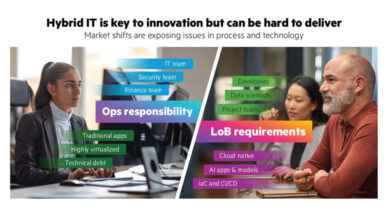Up in the clouds
 Cloud computing looks set to take not only the IT world, but also the business world by storm. Ryan Jennings looks at what it all means.
Cloud computing looks set to take not only the IT world, but also the business world by storm. Ryan Jennings looks at what it all means.
Cloud computing has been around longer than it has existed as a buzzword. Those of us who use Gmail and Hotmail for email will be familiar with the concept; your emails aren’t stored on your computer, they’re stored ‘up there’.
The logic of this service is to allow computing to become a quasi-out-sourced service, with saved files accessible on any device just as the services above are available to you from Dublin to Dubai.
The main benefits Irish organisations would expect to have are:
• No traditional software or hardware to buy or manage;
• No network per se to manage; and
• Instant programme upgrades to all computers connected to the ‘cloud’.
The 12.5 per cent of corporation tax that the state has employed for some time has attracted a number of IT companies and Ireland is considered well-placed (outside of Silicon Valley) to be a part of the cloud revolution.
Already a big player in the clouds, Google is naturally keen on the idea. Microsoft, it has to be said, has arrived slightly later to the plate but has the advantage that it still provides the operating system for 90 per cent of PCs.
Microsoft is very much centred on personal computer-based technology and so stands to lose out as the quality of computer will become less and less important so long as it has access to the clouds, or internet.
Many offices do not own a server and may perhaps have only basic software on staff’s personal computers. A company website doesn’t have to be hosted locally, indeed there does not seem to be a maximum distance put on user and host. And many, many people, 83 per cent in fact, use Google as their search engine.
Conversely, though, cloud users become dependent on an outside source for their technology. That has not discouraged the Los Angeles City Council though, which recently voted to adopt Google’s email system, in a move away from the traditional Microsoft Outlook.
IT commentators have pointed to Windows’ new offering, Windows 7, as marking the end of an era of self-storage and it is predicted that computing will increasingly move to the clouds from homes and offices.
Apple has also weighed into the fight but is not coming in from the cold. One of its flagship applications, iTunes, stores many millions of songs somewhere up there and indeed it accounts for 69 per cent of online music sales.
The three-way contest is reminiscent of the race to the PC, which clearly Microsoft won, leaving other operating systems in the dark for the best part of two decades.
The service will increase the importance of tackling the digital divide. As is becoming the norm, WiFi in restaurants, bars and cafés will also have to increase should users go down the cloud route as access will be required to complete any word processing, publishing or spreadsheet work.
It is anticipated that services could become cheaper for the consumer as advertising revenue would be used to fund the product. Indeed the Economist magazine adds to this argument, asking: “Why should every company or university set up and maintain its own server when Google or Microsoft can do it more efficiently?” A valid question.





